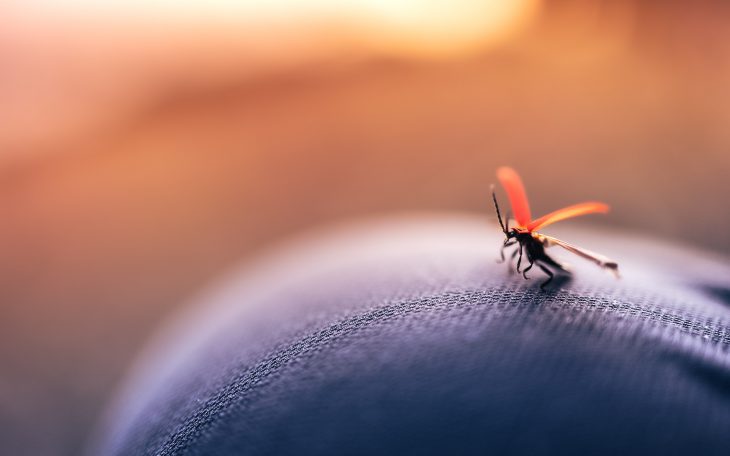Few things can ruin a summer barbecue as effectively as a swarm of mosquitoes. I’m a human bug lamp, the type of person everyone wants at an outdoor party. Friends in my vicinity remain unbothered while I swat away at an endless onslaught of blood-thirsty savages, angry lines of welts marching across my exposed skin. Once they get a taste of me, it seems they can’t get enough. But how do mosquitoes choose their victims?
The mosquito Aedes aegypti specializes in biting humans – a spine-tingling skill. This cosmopolitan species has spread around the world, carrying yellow fever and other human viruses with it. To better control the spread of disease, scientists want to understand how mosquitoes find their prey.
Ae. aegypti recognizes animals using clues like body heat and CO2 from their breath. They distinguish humans from other animals by odor, and they do so with disturbing ease. Their ability to sniff out humans is astonishing since animal body odors contain common molecules that are similar for different species.
An international team led by biologists from Princeton University recently set out to determine how they do it. Mosquitoes smell with parts of their mouths and antennae. These sensors connect to a specific area of the insect’s brain via bundles of neurons, or glomeruli. This team developed new imaging tools to see which mosquito glomeruli were being turned on in response to smells.
First, the scientists edited the mosquitoes’ genes so they had glomeruli that glowed when activated. Next, they placed each mosquito in a custom-built holder and pushed its head through a tiny mosquito-head-sized hole. Finally, they delivered streams of air to the captive insects and watched their brains react. The streams of air carried different smells, including odors from a human, a rat, and a sheep. They tested these responses against exhaled human breath, synthetic CO2, and unworn shirt-sleeves as controls.
The researchers used a technique called two-photon excitation microscopy to see which glomeruli lit up in the experiments. This method can detect the glowing chemicals in living tissue up to about a millimeter thick. The responses were surprisingly simple – the smells activated 3 main glomeruli. One glomerulus responded only to human odors, one responded only to animal odors, and one responded to both. These responses demonstrated that mosquitoes’ brains are hard-wired to distinguish humans from other animals by scent.
Next, the researchers performed wind tunnel experiments to test if the mosquitoes use these glomeruli to stalk humans in the wild. They released mosquitoes from the down-wind side of the tunnel and synthetic plumes of odors from the up-wind side. They used infrared cameras in the tunnel to watch the mosquitoes’ behavior. The experiments confirmed insects were most strongly attracted to odors designed to activate the human-specific glomerulus. This response is particularly useful for finding prey at long distances, in the absence of heat and visual cues.
The biologists also analyzed chemicals in the odor samples to figure out what was causing the mosquitoes’ brains to respond. They found human and animal odors contain an almost identical set of chemical compounds, but in different amounts. It’s like when you mix red, white, and yellow paint – heavy on the yellow and you get orange, heavy on the white and you get pink, heavy on the red and you just get red. Just like we prefer some colors over others, different mixes of chemicals are more or less attractive to mosquitoes. The insects’ glomeruli responded to whiffs of an imitation-human mix of compounds the same way they responded to the natural human blend.
So what exactly do mosquitoes find so alluring about human scents? Human odors are rich in sebum, oily compounds secreted from skin and hair follicles. Sebum differs from species to species, and unlike sweat it is produced by our bodies at the same rate whether we’re napping or working out. These traits make it a reliable people-detector. The mosquitoes’ preference for sebum could help scientists design more effective strategies to trap them.
Sebum also varies among human individuals. This difference can explain why mosquitoes target some people more than others. In this study, Ae. aegypti preferred people with near-normal sebum levels over those with higher or lower sebum levels. To explain my personal insect magnetism, my mother once proclaimed that I must be “sweeter than everyone else”. It seems she was incorrect. From the mosquitoes’ point of view, I smell irresistibly average.


